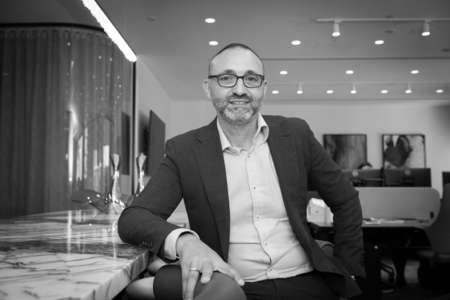Founder-led companies: What investors need to knowBY LAWRENCE LAM | FRIDAY, 16 MAY 2025 9:00AMFounder-led companies have long been a lucrative hunting ground for investors. A study by Bain & Company showed that these companies generated nearly three times the returns of non-founder-led firms over 25 years. But in recent years, we've seen a wave of founder controversies, from reckless decision-making to outright fraud, erasing billions in shareholder value. Elon Musk's antics have put a stain on his companies, while WeWork's Adam Neumann and FTX's Sam Bankman-Fried serve as reminders that not all founder-led businesses are created equal. On the other hand, companies like Chemist Warehouse, Flight Centre, Hermès, LEGO, and BYD have built immense and enduring wealth. The challenge for investors is to separate true wealth creators from those whose influence ultimately does more harm than good. Follow the ownership trend, not just the ownership percentage Start by checking the share register. Founder-led companies with dominant individual ownership often have the freedom to make long-term decisions without short-term market pressures - an edge for both the business and investors. A stable base of long-term shareholders also helps keep the stock price resilient. But it's not just about how much the founder owns, it's about how that ownership is changing. If a founder is offloading big chunks of stock, take note. The usual public excuses - personal reasons, diversification - are often just polite cover. In reality, founders tend to have a sharp sense of when their company is overvalued. Look at Dicker Data: In early 2024, David Dicker sold about $200 million worth of stock, about 10% of the company, according to a report from the AFR. He had already offloaded shares in 2021. He sold right as the stock peaked and it has now halved since then. Afterpay's founders did something similar before its sale to Block. Now, Palantir's Alex Karp has dumped $1.9 billion in shares, Financial Times reports, (20% of his holdings) just as its stock tripled post-Trump's election victory. That's a signal worth paying attention to. The flip side? Look for founders increasing their stakes; rare in Australia and even rarer in the US, but more common in Scandinavia, Central Europe and Asia where founders are building legacies, not looking for a quick exit. Long-term thinkers, not quarterly chasers True wealth creators are on a mission to build a company for endurance, not quarterly earnings calls. They allocate capital to R&D, brand investment, and market expansion with a long-cycle mindset, preparing to capture market share in downturns when competitors are cutting back. Telltale signs are strong reinvestment ratios, rising R&D expenditure and expansion initiatives during downturns. MercadoLibre and Pro Medicus exemplify this approach, strategically investing capital through market cycles, emerging stronger while others struggle. MercadoLibre doubled down on logistics and payments infrastructure long before Latin America's e-commerce boom, while Pro Medicus' disciplined R&D spending keeps it ahead in medical imaging technology. The founder's operating system Great founders replace themselves. This is why board and organisational structures should be of great interest to investors; quick decision-making is what gives founder-led companies their advantage. Having the right structure is what allows them to keep the bureaucracy at bay. Look at Flight Centre's "Tribes" structure which decentralises decision-making and promotes entrepreneurship within a large organisation. Similarly, great founder-led companies tend to have smaller, agile boards and executive teams with limited bureaucracy, allowing them to move fast and retain their competitive edge. To evaluate this, investors should look at board numbers and composition, executive team turnover, and internal decision-making structures. A founder's influence must be embedded into its operating system, not just their personal leadership style. When founders become liabilities The same qualities that make founders exceptional - vision, conviction and risk tolerance - can backfire if left unchecked. Watch for founders who overextend themselves, resist oversight, or make irrational strategic moves - these are landmines investors should avoid. There is a difference between conviction versus suppression of director dissent. Same goes for taking calculated risks versus overpaying for largescale vanity acquisitions. Also of great public interest are personal scandals. Whilst they don't destroy companies, they reveal a founder's modus of operandi. As Warren Buffett says: "Never is there just one cockroach in the kitchen", a reminder for WiseTech shareholders who thought Richard White's issues had been put to bed months ago. The founder-led portfolio strategy There is often an obsession with picking the single perfect company, but building a well-structured portfolio is just as crucial. While founder-led companies have the potential for outsized returns, they can also attract excessive speculation and inflated valuations. With over 1000 founder-led companies around the world, investors shouldn't feel obligated to stick with one just because it frequents the headlines. At times some will become overhyped, while others have yet to be discovered by the mainstream. Manage exposures wisely, holding a 20-30 stock portfolio of founder-led companies across multiple geographies and different industries. Avoid single-founder overconcentration because even the greatest founder's ability can be overestimated. If that happens, use it to your advantage - trim profits from the over-hyped, and reinvest in the up-and-coming founders. All the while holding a deep bench of founder-led companies in reserve. |
Latest News
Geopolitical risks force family offices into alternatives, cash: Survey
Labor proposes changes to ancillary funds
Australia's billionaire boom branded 'morally wrong' by Oxfam
Ironbark acquires family office firm
Cover Story

Skin in the game
PARTNER, MANAGING DIRECTOR
VIOLA PRIVATE WEALTH






















